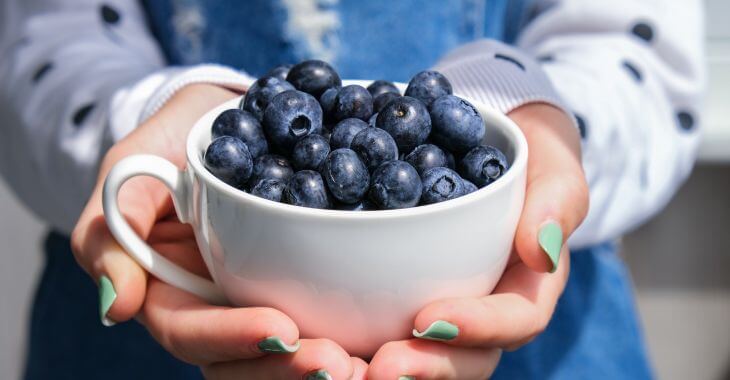Top Gut-Health Trends for 2025: What’s Shaping the Wellness World

Gut health has surged to the forefront of wellness in recent years. In 2025, it’s more than just a trend—it’s a pillar of total-body health. A well-balanced gut affects digestion, immunity, mental clarity, and even mood. People now see gut care as essential, which has led to more top gut-health trends.
Why Gut Health Matters More Than Ever
The gut is often called the “second brain” because of its huge role in emotional regulation, immunity, and metabolism. As science evolves, the connection between gut bacteria and overall wellness has become impossible to ignore. Better gut health equals better quality of life.
Key Drivers of the Gut-Health Movement
What’s fueling the rise of gut wellness in 2025?
- Growing research on the gut-brain axis
- Personalized microbiome testing
- Functional medicine influence
- Consumer demand for natural solutions
- Awareness of food sensitivities and IBS
These gut-health trends have made gut health a mainstream topic and boosted research into improving this vital aspect of overall wellness.
Debunking the Probiotic Timing Myth
One of the most persistent misconceptions is the probiotic timing myth—the idea that probiotics must be taken at a specific time of day to work. The truth? Consistency matters more than timing. Taking them daily, with or without food, is what really counts.
Personalized Probiotics Go Mainstream
In 2025, personalization rules. Gut tests now help people choose probiotics tailored to their unique microbiome. Companies offer targeted blends for digestion, immunity, or mental clarity. Generic probiotics are fading as people demand smarter solutions.
The Rise of Prebiotic Foods
Probiotics need fuel—and that’s where prebiotics come in. These plant fibers feed beneficial bacteria, helping them thrive. More people are adding prebiotic-rich foods to their diets, options like:
- Chicory root
- Green bananas
- Jerusalem artichokes
- Garlic and onions
Expect to see prebiotic snacks and supplements dominate shelves, especially in the health and wellness departments at grocery, drug and other retail stores.
Low-FODMAP Starter List Becomes a Go-To Tool
The low-FODMAP diet limits certain carbohydrates that are hard to digest, reducing bloating, gas, and discomfort. FODMAPs—found in foods like onions, wheat, and dairy—can trigger IBS symptoms. A low-FODMAP starter list helps identify safe foods for better gut comfort and balance.
As digestive issues rise, the low-FODMAP starter list is helping people identify trigger foods. It’s especially useful for those with IBS or bloating. This list highlights high-FODMAP foods to avoid, making it easier to start an elimination diet.
No longer niche, the low-FODMAP approach is part of everyday wellness. In 2025, food brands are labeling products accordingly, and dietitians are using FODMAP lists as standard tools for gut repair. Consumers want transparency and gut-friendly food.
Mental Health & the Gut-Brain Connection
The link between gut health and mood is now backed by serious science. A healthy gut may improve:
- Anxiety and depression symptoms
- Sleep quality
- Emotional resilience
- Cognitive function
Expect more supplements marketed for “mood support through microbiome balance.”
Gut-Skin Axis Gets the Spotlight
Another gut-health trend for 2025? The gut-skin connection. Inflammatory skin issues like acne, eczema, and rosacea are now seen as potential signs of gut imbalance. Gut-focused solutions are replacing harsh topicals in the skincare world.
Gut Health Goes Tech-Savvy
Digital health tools now help track digestion, food reactions, and supplement results. Gut-health apps offer:
- Symptom logs
- AI-based food suggestions
- Microbiome data tracking
- Custom supplement plans
This tech empowers users to manage their gut health more actively.
Fermented Foods Stay in the Spotlight
Fermented foods remain popular, thanks to their natural probiotic content. Staples include:
- Sauerkraut
- Kimchi
- Kefir
- Miso
- Kombucha
These foods are being repackaged as on-the-go options and showing up in creative new product lines.
Supplements Get Smarter
Gut-health supplements are no longer just capsules. In 2025, you’ll see:
- Probiotic powders in protein shakes
- Shelf-stable synbiotics (pre + probiotic)
- Targeted strains for IBS, inflammation, or immunity
- Liquid delivery systems for faster absorption
People want gut support that fits their lifestyle.
Gut-Friendly Snacking On the Rise
Brands are rethinking snacks by focusing on ingredients that support digestion. Examples include:
- Chickpea chips with prebiotics
- Low-FODMAP granola bars
- Almond yogurt with added probiotics
- Gut-boosting herbal teas
Snacking is now a gut-health opportunity, not just a filler.
Breaking the One-Size-Fits-All Model
2025 marks a shift away from one-size-fits-all gut advice. People now realize gut health is personal. Genetics, diet, stress, and lifestyle all shape the microbiome. That’s why customized food and supplement plans are becoming the norm.
Kids’ Gut Health Gets Serious
Parents are starting young with gut care. Children’s probiotics, low-FODMAP meal ideas, and gut-friendly lunchboxes are trending. Early gut balance is believed to support:
- Stronger immunity
- Fewer allergies
- Better behavior and focus
- Balanced digestion

It’s never too early to start gut wellness. Functional medicine, holistic nutrition, and conventional care are merging for all ages. Gut health is now part of the conversation in doctors’ offices, therapy rooms, and fitness centers. It’s a foundational pillar of modern healthcare.
Gut health isn’t just a fad—it’s the foundation of modern wellness. From debunking the probiotic timing myth to using the low-FODMAP starter list as a daily tool, 2025’s trends are pushing gut care into smarter, more personalized territory. Your microbiome matters—and now the world knows it.
The information provided on this website, including text, graphics, images, and other materials, is intended solely for informational purposes and should not be used as a substitute for professional medical advice, diagnosis, or treatment.




)